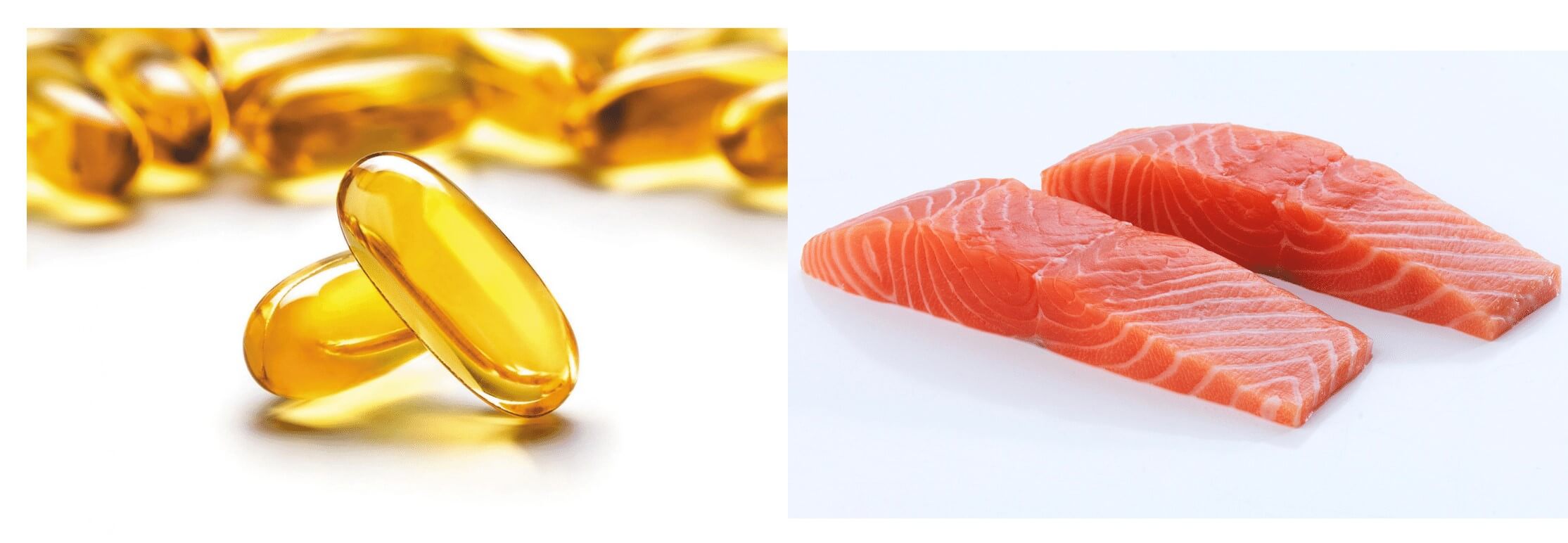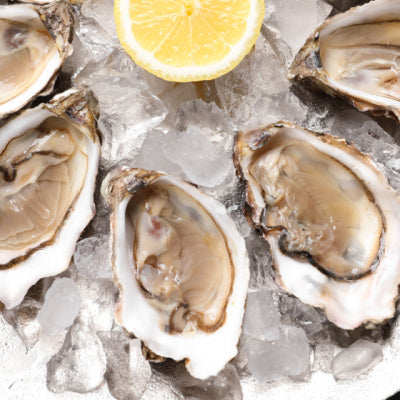Your Cart is Empty
FREE SHIPPING ON ALL ORDERS OVER $125!
FREE SHIPPING ON ALL ORDERS OVER $125!
FREE SHIPPING ON ALL ORDERS OVER $125!

With summer fast approaching, you might be looking to add more seafood to your meal rotation. Seafood is an excellent source of protein that can provide the body with heart healthy dietary fats, specifically Eicosapentaenoic acid and Docosahexaenoic acid (better known as EPA and DHA).
These types of fats are long-chain Omega-3 fatty acids (a.k.a. Omega 3s) that can be found in fish and shellfish. Our bodies do not naturally produce EPA and DHA, which are considered essential fatty acids, so we need to consume them in our diet to reap their health benefits. Another type of Omega 3 fat, alpha-linolenic acid (ALA), is found in chia seeds, walnuts, ground flaxseeds and soybeans.
These essential fatty acids have garnered quite a bit of attention due to their abilities to reduce inflammation and assist in lowering blood cholesterol levels. It is quite common for people nowadays to opt to get their Omega 3’s from over-the-counter dietary supplements, but what are the health benefits of choosing to eat fish and shellfish to get the benefits of Omega 3s, as opposed to fish oil dietary supplements? Read on to learn all about the pros and cons!
Jump to Specific Questions:

Researchers have concluded that the BEST way to claim the dietary benefits of Omega 3 fatty acids is to consume them through seafood instead of through supplements. According to the National Institute of Health, research indicates that omega-3 supplements don’t reduce the risk of heart disease the way that regular fish consumption does.
In addition to Omega 3’s, seafood can provide a wide variety of vitamins and minerals, including but not limited to Vitamin D, Vitamin A, Selenium, Calcium and Magnesium. These vitamins and minerals each have a wide variety of roles in the body that are important for optimal health and to support many essential processes in the body.
So what exactly do each of these vitamins and minerals do for our bodies? Let’s take a look:
Another consideration as you opt for consuming fish in place of simply popping fish oil supplements is the quality of the supplements you may have been choosing to consume. The dietary supplement industry is not as tightly regulated as you may think. You cannot always guarantee that you are getting high quality fish oil and you may not actually be getting the dosage of EPA and DHA that the labels claim.
Mercury content of the fish oil supplements may also be a concern in poorly formulated products. If you choose to consume fish but also to supplement, look for third party tested dietary supplements, specifically those with the NSF certification to guarantee high quality products.


When purchasing both wild caught and farmed seafood, it is important to check that the product is Certified Sustainable to ensure that it has been produced according to responsible standards. Look for the MSC logo on wild caught seafood and the ASC or BAP logos on farm raised seafood.
Sticking with seafood over supplements? Not a bad idea! Top choices for Omega 3’s include cold water fish such as salmon, tuna, herring, mackerel and sardines.
Aim to have fish two times per week to reduce inflammation and get those cardio-protective benefits. Looking for some new ideas to add seafood into the rotation this summer? Check out what Chef Andrew has been cooking up…
Check out the recipe, right here!
Check out the recipe, right here!
Comments will be approved before showing up.



Learn about the many health benefits of shellfish! Oysters, Clams, and Mussels are rich in Omega 3 fatty acids, lean protein, and micronutrients.
Sign up to receive the best seafood recipes, first access to new products, exclusive discounts and more!